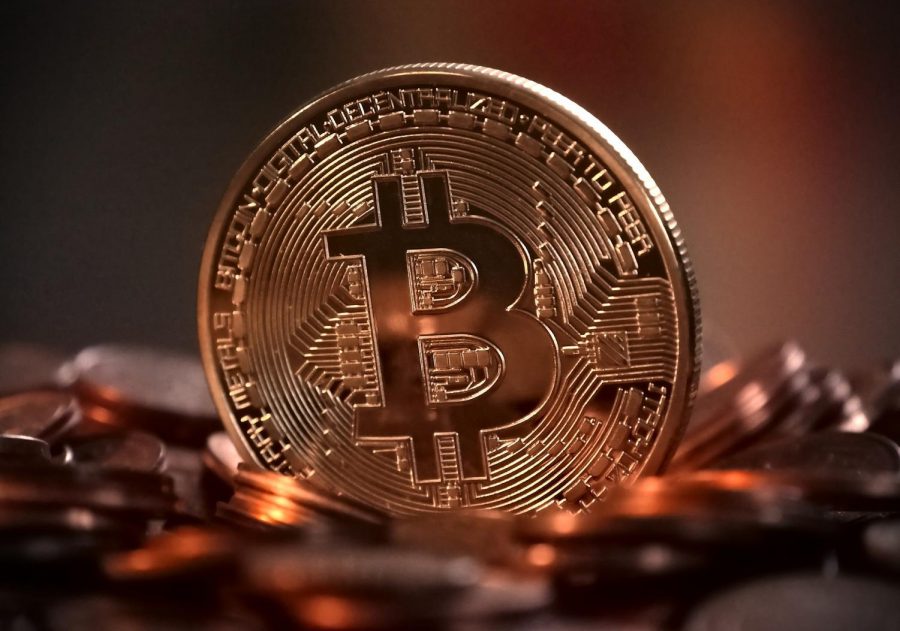An Intro to Bitcoin
February 7, 2018
In today’s modern society, it is important to know exactly what cryptocurrency is and why it’s so popular. Lately, Bitcoin has made a huge surge in popularity and has finally come into the mainstream, after nearly a decade of existence. Many people are seeing Bitcoin’s jump from $900 in December of 2016, up to nearly $20,000 exactly a year later. If you think you want to invest in Bitcoin, you must realize that is a huge risk, and should really understand what it is and how it works before dropping hundreds of dollars into it; which is exactly why I am writing this article.
What is Bitcoin?
The official definition of Bitcoin is: “a type of digital currency in which encryption techniques are used to regulate the generation of units of currency and verify the transfer of funds, operating independently of a central bank”.
This definition is admittedly rather confusing if you’re not already well-versed on the topic of digital currency, so I’ll try to put it in terms that people like you and me can understand. Essentially, Bitcoin is one of many kinds of crypto/digital currency that is decentralized, limited, and anonymous.
Bitcoin being decentralized means that there is no core power (be it a single person, company, or group of people) ruling over it. The initial code for it was created by an anonymous programmer under the pseudonym of Satoshi Nakamoto. Afterwards, Bitcoin has been run entirely by the community. Nobody is able to manipulate Bitcoin transactions, which is its main appeal to many people. There is no middle-man, such as a bank or government official, all transactions are directly from one person to another, and impossible to undo or modify once they are made.
Another reason Bitcoin is a highly sought-after form of currency is the fact that it is a limited resource. There is a fractional amount of coins that trickle into circulation every hour by Bitcoin “miners”, however, this only continues until the maximum of 21 million coins is hit. So far, it is reported that ~80%(according to Investopedia) of those 21 million coins have been mined. Once that limit is reached, there is no way to add coins into circulation, as it is tightly maintained by the algorithm created by Satoshi Nakomoto.
Bitcoin is also almost entirely anonymous. Since it is decentralized, there is no requirement to use ID or name oneself when making a transaction. All transactions are visible on the Blockchain network, but because they only show wallet addresses and amount of Bitcoin, it is nearly impossible to track the source and details of any transaction. This is the reason that many people worried about government control choose to use Bitcoin.
Should I invest?
Although I personally would not invest in Bitcoin, that doesn’t mean it would be a bad decision for everyone. One thing to keep in mind is that Bitcoin is extraordinarily volatile; there are several situations that could cause Bitcoin to immediately drop in value and never rise again.
Many people compare investing in Bitcoin to investing in stocks, but it is much more accurate to compare it to investing in another currency because that’s exactly what it is. Stocks are relatively easy to interpret and react to price changes. Often when Bitcoin plummets or shoots in value, nearly nobody sees it coming, and one must be actively tracking the price to react quickly enough. I recall the one time I invested in Bitcoin was back when it had first risen to ~$5,000. The price was floating around there for a while, so I decided to invest $200. Almost immediately after, the price of Bitcoin plummeted to under $1,000 because China was considering banning Bitcoin. The price stayed at that level for a little over a month, and it seemed like it wouldn’t go up again, so I foolishly sold and lost some of my money.
Overall, I would recommend only investing in Bitcoin or other digital currencies if you are experienced with other investments and committed to paying attention to Bitcoin news, price, and trends. If you are wise with the money you drop into Bitcoin, and at least somewhat cautious about it, then you could be one of many people profiting from Bitcoin.
Sharma, Rakesh. “Only 20 Percent Of Total Bitcoins Remain To Be Mined.”Investopedia, 19 Jan. 2018, www.investopedia.com/news/only-20-percent-total-bitcoins-remain-be-mined/.
“What Is Bitcoin?” CoinDesk, 29 Jan. 2018, www.coindesk.com/information/what-is-bitcoin/.

